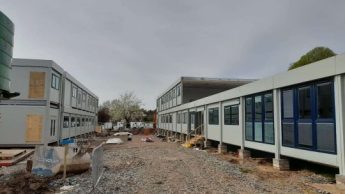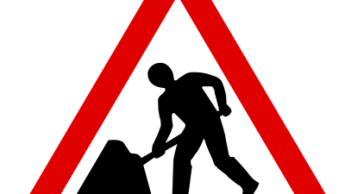The department aims to deliver high quality Geography education that inspires our students to become fascinated and curious about the world, its people and how they interact. All students will therefore:
- Understand our sense of place within the world; past, present and future.
- Engage in current world affairs and issues so they are contributing to the global society that we all live within.
- Engage about processes that occur with an appetite to learn more about their impacts on people and places.
- Access the curriculum in a way that skills, knowledge and writing structures can be used to become independent learners that can apply what they have learned in all fieldwork write ups to the NEAs at A level.
Purpose of Study at Key Stage 3
A high-quality Geography education that inspires in pupils a curiosity and fascination about the world and its people that will remain with them for the rest of their lives. All pupils will be equipped with knowledge about diverse places, people, resources and natural and human environments, together with a deep understanding of the Earth’s key physical and human processes. As pupils progress, their growing knowledge about the world should help them to deepen their understanding of the interaction between physical and human processes, and of the formation and use of landscapes and environments. Geographical knowledge, understanding and skills provide the frameworks and approaches that explain how the Earth’s features at different scales are shaped, interconnected and change over time.
Aims at Key Stage 3
The national curriculum for Geography aims to ensure that all pupils:
- develop contextual knowledge of the location of globally significant places – both terrestrial and marine – including their defining physical and human characteristics and how these provide a geographical context for understanding the actions of processes.
- understand the processes that give rise to key physical and human geographical features of the world, how these are interdependent and how they bring about spatial variation and change over time.
- are competent in the geographical skills needed to:
- collect, analyse and communicate with a range of data gathered through experiences of fieldwork that deepen their understanding of geographical processes.
- interpret a range of sources of geographical information, including maps, diagrams, globes, aerial photographs and Geographical Information Systems (GIS).
- communicate geographical information in a variety of ways, including through maps, numerical and quantitative skills and writing at length.
Key stage 4 GCSE AQA Geography
This course studies geography in a balanced framework of physical and human themes and investigates the link between them. Students will travel the world from their classroom, exploring case studies in the United Kingdom (UK), higher income countries (HICs), newly emerging economies (NEEs) and lower income countries (LICs). Topics of study include climate change, poverty, deprivation, global shifts in economic power and the challenge of sustainable resource use. Students are also encouraged to understand their role in society, by considering different viewpoints, values and attitudes. Upon completion of this two year course, students will have the skills and experience to progress onto A-level and beyond.
The subject content is split into four units:
3.1 Living with the physical environment,
3.2 Challenges in the human environment,
3.3 Geographical applications
3.4 Geographical skills.
In units 3.1 and 3.2 the content is split into sections, with each section focusing on a particular geographical theme.
Unit 3.3 sets out the requirements for fieldwork and issue evaluation.
Unit 3.4 sets out the geographical skills that students are required to develop and demonstrate.
Key stage 5 A level OCR Geography
A Level in Geography aims to encourage learners to develop a range of essential skills for Higher Education and the world of work through content which is relevant to any citizen of the planet in the 21st century. Through exciting topics learners will understand the nature of physical and human geography whilst unpicking the debates surrounding contemporary challenges facing the world today.
A Level Geography will enable learners to:
- develop their knowledge of locations, places, processes and environments, at all geographical scales from local to global across the specification as a whole.
- develop an in-depth understanding of the selected core and non-core processes in physical and human geography at a range of temporal and spatial scales, and of the concepts which illuminate their significance in a range of locational contexts.
- recognise and be able to analyse the complexity of people-environment interactions at all geographical scales, and appreciate how these underpin understanding of some of the key issues facing the world today.
- develop their understanding of, and ability to apply, the concepts of place, space, scale and environment, that underpin both the national curriculum and GCSE, including developing a more nuanced understanding of these concepts.
- gain understanding of specialised concepts relevant to the core and non-core content. These must include the concepts of causality, systems, equilibrium, feedback, inequality, representation, identity, globalisation, interdependence, mitigation and adaptation, sustainability, risk, resilience and thresholds.
- improve their understanding of the ways in which values, attitudes and circumstances have an impact on the relationships between people, place and environment, and develop the knowledge and ability to engage, as citizens, with the questions and issues arising.
- become confident and competent in selecting, using and evaluating a range of quantitative and qualitative skills and approaches, (including observing, collecting and analysing geo-located data) and applying them as an integral part of their studies.
- understand the fundamental role of fieldwork as a tool to understand and generate new knowledge about the real world, and become skilled at planning, undertaking and evaluating fieldwork in appropriate situations.
- apply geographical knowledge, understanding, skills and approaches in a rigorous way to a range of geographical questions and issues, including those identified in fieldwork, recognising both the contributions and limitations of geography.














